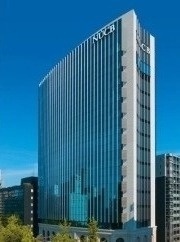Simulate management experience through case method learning
All courses at the NUCB Business school are delivered in the case method format. Course materials consist of the latest business cases from premier case publication houses, such as Harvard Business Publishing, IMD, and Ivey Publishing. These business cases explore management issues faced by actual companies operating at the forefront of the evolving world of business. Simulating management decision-making using the hundreds of different cases inculcates the managerial perspective necessary for recognizing and analyzing the various factors that influence and are impacted by consequential decisions in business. In addition, through robust discussion, participants' practical management skills are formed, developed, and strengthened.
There is always a protagonist in any case, burdened with some issue. MBA students relive the protagonist's concerns as they read through the case, and finally "become" the protagonist to make a decision. The scenario given in a case is already in the past, and in reality, the protagonist has already made their choice. The purpose is not to guess what the protagonist's decision was, but to savor the opportunity to consider and discuss how YOU would make the decision.
During group discussions and general discussions, you will refine your decision-making while listening to the experiences of the faculty and other students. Although the course of study lasts for only two years, by re-experiencing the decision-making of hundreds of managers, you will build experience as a leader that cannot be acquired through theory alone.
-

Realistic company cases develop innovative management skills
With most of the world’s business cases having been published by Harvard, cases must be translated for use in MBA courses conducted in Japanese by the Case Center Japan, operated by the NUCB Business School since 2019. Most of these cases are 5 to 10 years old, which means fewer cases address the newest issues and problems faced by companies today. Although there is always much to learn from history, and newest does not always mean best, it is also true that management is always dealing with new concerns and considering modern solutions.
For this reason, our school maintains a database of over a thousand cases written by alumni about their companies, with more than 100 new cases developed every year. Because these cases cover issues recently faced by companies varying in size, structure, and scope of influence, professors often use these cases in their courses, allowing course participants to study real and current events in the business world.
-

An exploration of your company strategy as the culmination of your research
At the Business School, all MBA students are required to develop and submit an original case written on a specific subject of research in order to complete their program. Through investigation and detailed analysis of challenges which their own companies have faced, students employ the managerial perspective that they have developed throughout the course of their studies to illustrate the forces influencing decisions and examine the resulting success or failure.
One of the main purposes for encouraging students to focus their cases on their own companies is to enable them to immediately utilize the results of their research by presenting their cases at their companies and making informed recommendations based on their findings. Outstanding cases written by alumni are often employed as course materials by our faculty. The authors of those cases can participate as advisors in the courses in which their cases are used.
-

Learn together with students from diverse backgrounds
Learning together is also an important feature of the Case Method. Through case discussions, only 10% of class time is spent listening to lectures from instructors; the remaining 90% is discussions with other students. In other words, there is much more to learn from the experiences of those in the classroom than there is from the instructor.
The case discussion is a place for each student to relive the situation of troubled protagonist who appears in the case. Understand their position, take the position, and solve your worries together. The experience will be accumulated in one case and one class. The experience will be condensed into two years and will develop the students. You will be subject to a dense and rich experience that you cannot get in your daily work.
-
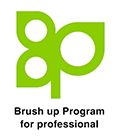
Programs accredited by the Ministry of Education's “Brush-up Program for Professionals” Program
The NUCB Business School master’s degree and PreMBA programs are accredited by the Ministry of Education, Culture, Sports, Science and Technology (MEXT)'s “Brush up Program for Professionals” program. This program aims to broaden the opportunities for brushing up on the skills required by today’s industries, and certifies programs demonstrating that faculty teaching methods meet the practical, real-world requirements of professionals in continuing education classes.
3 steps to develop management skills effectively through Case Method learning
.png)
Source: L. A. Mauffette-Leenders, J. A. Erskine, and M.R. Leenders (2001), Learning with Cases 2nd ed., London, Ontario, Canada: Ivey Publishing.
Management requires a wide-range of skills: analytical, logical thinking, presentation, and leadership skills. The NUCB Business School develops these skills through the case method, in which participants repeatedly follow the three major steps: preparation, group discussion, and class discussion.
-
STEP1
Individual preparation: case interpretation, hypothesis generation
Participants receive the casebook in digital format two weeks before the class begins. They read the case and examine how a company succeeds or struggles. They need to complete their preparation by generating a hypothesis and considering questions assigned before the class, referring to the text and recommended books as prescribed by the course instructor.
-
STEP2
Group discussion: reach the conclusion through multiple discussions
Participants start with a group session. They break into small groups as instructed beforehand, and each group enters a group room to consider the hypotheses and analyses of each member, debating opinions and answers to assigned questions. Each member can clarify their thinking to gain a deeper understanding of the case.
-
STEP3
Class discussion: pursuing the best management decision in the class
Participant discussion is facilitated and evaluated by the course instructor, who uses polls and discussion questions to encourage conversation, pushing participants to consider how a company in a scenario should proceed and fielding reactions to responses from other participants. This meeting of opinions from different perspectives leads to deeper consideration of differing perspectives and approaches to a problem. The ultimate goal of case method is not reaching one conclusion as a class, but encouraging reflection on individual attitudes and approaches in preparation for situations similar to those in cases that they have studied and debated.
Field method to complement the case method
In addition to the primary teaching methodology of the case method, our curriculum also incorporates practical methods in its entrepreneurial courses. Practical methods supplement the case method by providing students with a chance to learn through their own experiences outside the classroom. In contrast with case method learning which is gained through discussion, fieldwork learning is gained through experience. Both of these methods are complementary and by putting knowledge acquired through case study into practice outside the classroom, students gain insights which guide them in finding the best practices.
Raising quality of education with stringent faculty selection process
One of the most important factors determining the effectiveness of case method teaching is the quality of the faculty members who facilitate it. Not only do our faculty members have academic backgrounds as MBAs and doctoral degree-holders, more than 90% of them are practitioners with management experience in the business world. To become members of the faculty at the NUCB Business School, they must surpass a number of strict requirements on practical experience related to their areas of specialization, quantity and quality of publications, and other standards set by international accreditation organizations such as AACSB and AMBA. As a result of this process, faculty members understand that they are expected to provide practical learning directly related to business, which is reinforced through detailed feedback reports from course participants. These continuous improvement processes contribute to the growth and activities of our graduates and our high evaluation by the world's authoritative QS and FT rankings.
Center for Case Teaching & Learning
With a goal of refining the teaching quality of business schools’ faculty members, we have welcomed experts and founded the “Center for Case Teaching & Learning.” At the Center, we offer information about case method research through workshop seminars and training sessions for the academic faculty so that they become familiar with participants-centered learning methods.
READ MORE
Case Center
The over 100 cases developed every year at the NUCB Business School are added to the Case Center’s collection. Besides housing the latest cases in the region, the Asia Pacific Case Center supports student research by recognizing excellent cases annually with the Case Award.
READ MORE
About Case Method
-
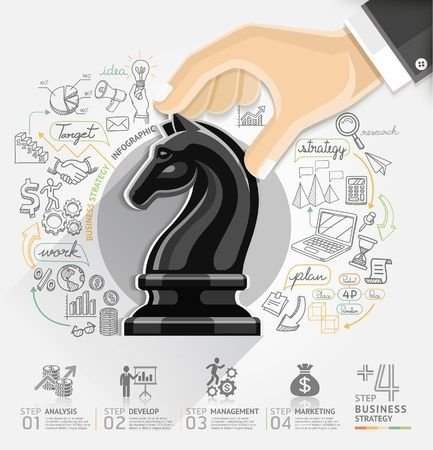
Difference between case study and case method
The case method is a teaching method that utilizes cases (examples/judicial precedents), and has become an indispensable method in professional schools (law schools, business schools, medical schoo...
READ MORE
-

The appeal of the case method
The Case Method is an educational method that became famous in Japan with the "Harvard White Heat Classroom." The case method is a method in which the instructor and the students interact with each...
READ MORE
MBA in Action
Event
Those interested in experiencing the case method can do so by signing up for an open information session. In addition to full-year degree programs, the NUCB Business School also offers a variety of other options for prospective students, including Focused Programs, PreMBA, and corporate training. Please contact our office to find out how you can experience the case method for yourself.
-
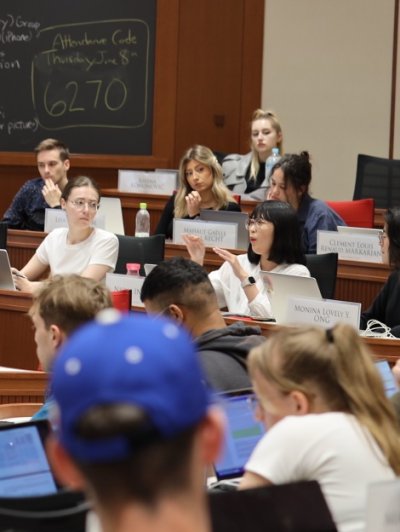
-

-

-
13:30-15:30 UTC+9
- Entry Open
- Nagoya
Global MBA Open Campus in Nagoya: Admissions Guidance, Campus Tour, Q&A


 Brochure
Brochure
 Info Session
Info Session
 Online Application
Online Application
 MBA Basics
MBA Basics


